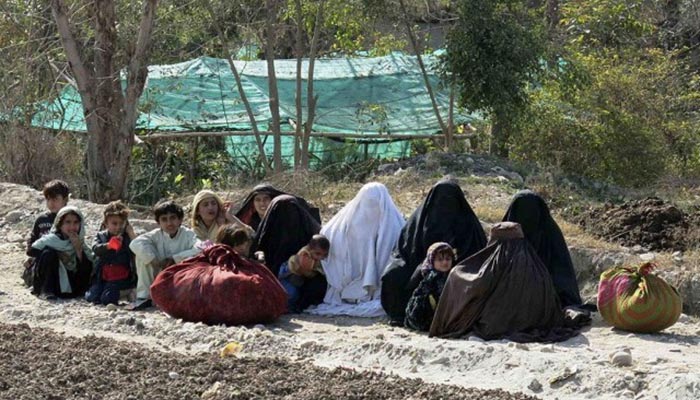Rebuilding FATA will not be easy
It the time for the government to realize that rebuilding FATA will require more than just handing out cash and cheques
September 26, 2017

Since 2002, the Pakistan Army has launched eight full-scale military operations in the Federally Administered Tribal Areas, along the Pak-Afghan border, in order to expel a variety of militants. The latest of which was Operation Zarb-e-Azb.
The assaults triggered a mass displacement of people fleeing the conflict-affected areas. Initially, those seeking shelter, whose numbers varied over the years, were categorized as the ‘Internally Displaced Persons.' Later, the name was revised to ‘Temporarily Displaced Persons.'
After facilitating them in makeshift camps for several years, in 2015, the government began a phased return plan for the TDPs. There was much celebration and then much disappointment. For the people of FATA, the trek back home has not been easy. In order to facilitate the homecoming, last year the state announced US $4,000 for the rebuilding of houses reduced to rubble and $2,000 for damaged properties.
That, if you ask the residents, isn't much.
Most of FATA's terrain is mountainous. Building a home there is difficult. Preparing the groundwork and getting the construction machinery and materials up an uneven surface increases the cost. The residents of the area first buy the materials from Peshawar, Dera Ismail Khan, Tank and Bannu. And then pay exorbitant fares to have a truck transport them to the tribal belt. The intermittent rain and seasonal snow further complicate the efforts.
Then, there is a shortage of skilled labour in FATA. During the displacement phase, labour from the tribal areas was employed by NGOs and firms to work in other cities. Few of them have returned since then.
In pockets, free movement is also a big challenge. Neighbourhoods are laced with landmines left earlier by residents to protect themselves against militants and to settle disputes. These homemade bombs have remained uncovered, posing a serious threat to life. In South Waziristan alone, in the last six months, over 70 people have been killed or injured by the blasts, according to Manzoor Ahmed Pashteen, a social activist from South Waziristan, who helps treat the victims.
It is a tall task, rebuilding a home, and rebuilding it in a budget of $4,000. If one manages to achieve that, the next step is trying to address the lack of basic utilities, water and sewage systems. The string of military assaults has damaged FATA's infrastructure, which now needs a major rethink by the federal government. Gas is in short supply. Internet and phone lines are torn. In addition, hovering over the recovery efforts are corruption and mismanagement. There are few, if any, land records in FATA. Residents are finding it increasingly hard to find the boundaries of their land, which in turn creates further chaos between neighbours.
It the time for the government to realize that rebuilding FATA will require more than just handing out cash and cheques.
Mehsud is a freelance journalist.
The views and opinions expressed are those of the author and do not necessarily reflect the official policy or position of Geo News or the Jang Group.











